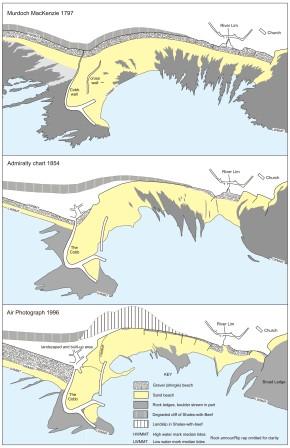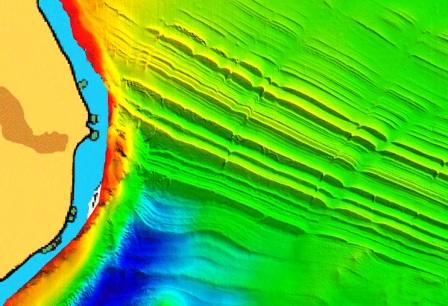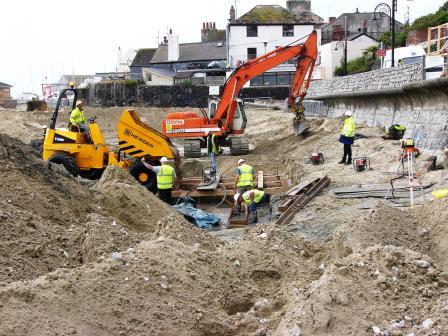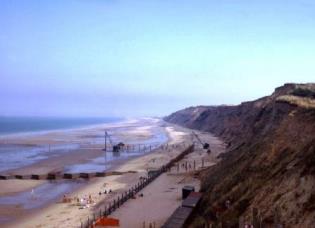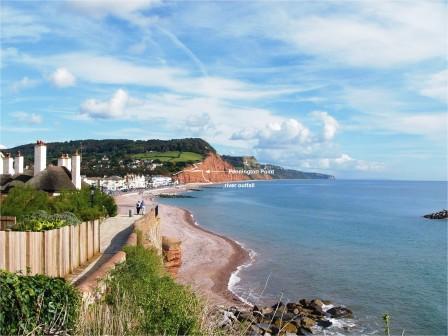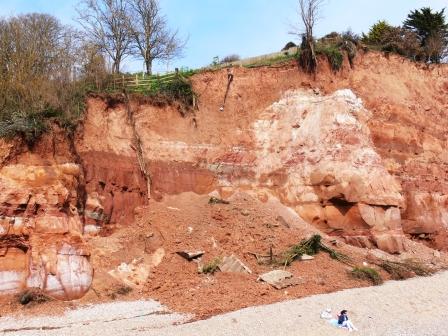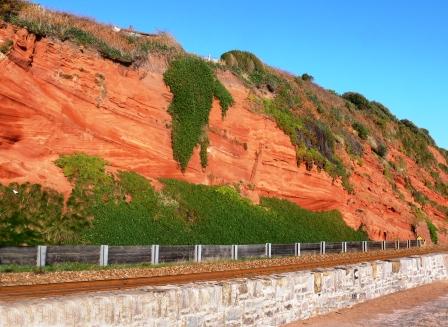Coastal processes are, to state the obvious, natural phenomena that involve erosion of parts of the coast and the transport and deposition of the weathered materials to other parts. Like all natural processes that are in an overall state of equilibriu, over periods of tens to hundreds of years, they are subject to Le Chatelier’s Principle. If the equilibrium is disturbed, for example by building a sea wall or emplacing groynes to stop the movement of beach deposits, the system will move towards a new state of equilbrium. Usually with predictable, but rarely foreseen, undesirable consequences on the way.
click on images for additional information
C RWG
O
Permian sand dunes, Dawlish, Devon.
Emplacing wooden revetments, Mundesley, Norfolk 1964
Coastal erosion at Pennington Point, Sidmouth, Devon.
Active erosion at the former Pennington Point.
Changes in the beach deposits at Lyme Regis over the past 200 years.
Building a new sea wall, Lyme Regis, Dorset.
Sea-bed ledges formed by harder beds in the Kimmeridge Clay, Isle of Portland, Dorset.
C RWG
O
C RWG
O
C RWG
O
Home Site Investigation Landslides Coastal Erosion Oil Shales Hot Springs Research Publications Contact
Selected References
Gallois, R. W. and Davis, G. M. 2001. Saving Lyme Regis from the sea: the results of recent geological site investigations. Geoscience in south-west England, Vol. 10, 183-189.

Gallois, R.W. 2011. Natural and artificial influences on coastal erosion at Sidmouth, Devon, UK.
Geoscience in South-West England, 12, 304-312.
